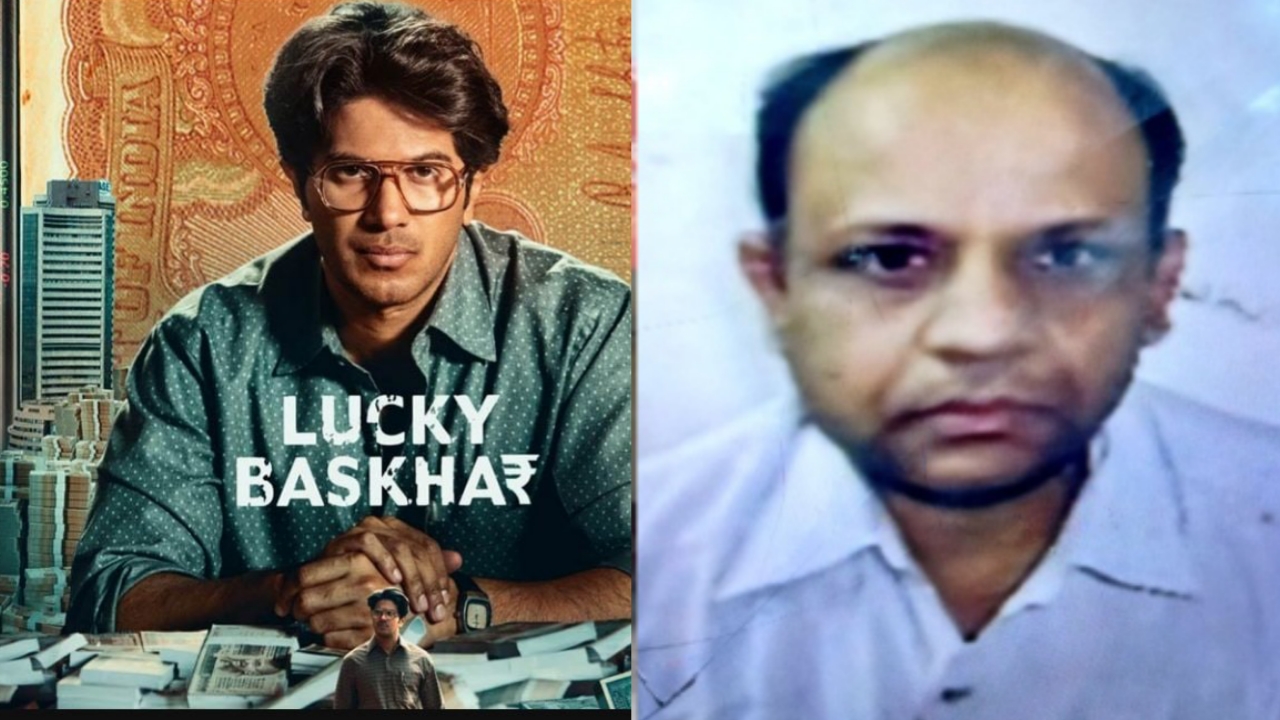Recently, a Telugu movie called “Lucky Bhaskar” was released, where the hero takes some money from a bank locker and uses it for his own needs. Similarly, in Mumbai, a person named Hitesh Mehta quietly took 122 crores from the Mumbai Cooperative Bank. This didn’t happen in just one day or one month; it took 5 years for this scam to unfold.
So, the question is, where is the accountability? How did this scam happen? How did an ordinary bank manager steal such a large amount of money? Due to this scam, 1 crore 30 lakh people have suffered losses. Even if they suffer losses, who will return this money? We will find out in this video what exactly happened in the New India Cooperative Bank scam. How did this scam even start?.. There are so many people in Mumbai city.
For dry fruits best deal click here
People are saying that the service in government banks in the city is poor, but they are providing good service, so they have started depositing their money in this new india cooperative bank. This bank is not new; it has been running in Maharashtra and Gujarat since 1968. With that trust, people deposit their money, but suddenly… Feb 14 Reserve Bank of India In this bank, whether to deposit money or withdraw the deposited money is restricted , people who knew about it immediately went in front of the bank and started a protest because a scam happened in that bank.
Let me tell you how that scam happened. Every bank has a CEO who monitors the entire business happening in that bank at all times. However, the CEO of New India Cooperative Bank, Sushil Kumar Ghosh, while conducting internal audits one day, noticed some discrepancies in the accounts, leading to a suspicion that some money was missing from the bank. He immediately went to the RBI and filed a complaint, stating that something was wrong with the bank where he was working. He went to the Reserve Bank of India.
In the Prabhadevi area of Mumbai, an audit team was sent to the head office of the New India Cooperative Bank to audit all the transactions in the bank. After checking all the accounts in the bank, the audit team had to check the cash in the bank locker to complete the audit. The locker keys are kept with the bank’s general manager, Hithesh Mehtha. RBI officials broke the lock of the locker, opened it, and took the money. The money in the accounts and the money in the locker have a difference of 122 crores. When asked about the money in the locker, the bank employees say they don’t know and that we don’t have access to the bank locker at all. The locker room was open, and the access bank general manager, Hithesh Mehtha, was the only one there.
However, seeing this, the RBI officials had a doubt: whether the money was missing from this one branch or if it was also missing from other branches. When they checked, they found that in another branch in Goregaon, Mumbai, a whopping 10 crores were also missing, the RBI officials said.
Instead of being a simple and straightforward bank manager, he used his power to exploit people’s money. Where is the question: has that money gone somewhere? As I mentioned at the beginning, this story will be like a Lucky Bhaskar movie, so watch it.
The bank’s general manager, Hithesh Mehtha, said he was transferring money from the Prabhadevi branch to the Goregaon branch in Mumbai and took money to his home. According to the data in the news report, the money given by Hitesh Mehta was distributed among two individuals, the first of whom is Dharmesh Paun, a real estate developer who is running a project under the Mumbai Slum Rehabilitation Authority (SRA). That project manager invested 70 crores of the bank’s money. When the police investigated the real estate developer Dharmendra Paun, he claimed that Hithesh Mehtha had given him only 2 crores, and he also revealed a new story about he gave 1.5 crores to him back.
Next, the second person involved in this scam is Arunachalam, also known as Arun Bhai in Mumbai. He transferred 40 crore rupees to the bank manager. But as soon as he gets caught in this scam, he immediately gets arrested by the police. In the present scam, among the three individuals involved, only two are present, and even they are not being given the money properly. So, what’s interesting here is that the bank manager doesn’t just deal with cash in the bank. There is a bigger story behind this: Generally, banks categorize the loans they issue into different sectors, like agricultural loans, industrial loans, real estate loans, home loans, etc.
According to data published by CNBC, the loans given by New India Cooperative Bank to the public have been directed towards the real estate sector. This is very concerning because when a sector receives more than 50 percent of the loans, if that sector does not perform well for a few years, all the loans given to that sector turn into bad loans. Even in this bank matter, the same thing happened, with 418 crores in the real estate sector. Because of this, the bank’s NPA has increased. NPA means non-performing assets. Simply put, some people take loans and do not repay them, which are called non-performing assets.
The bank’s NPAs have reached a staggering 8 percent due to the high loans given for real estate. Because of this, the bank loses 40 crores of rupees every year. If they did it without the support of a regular bank manager, then it’s not our fault. That’s why RBI officials suspended the board of directors associated with New India Cooperative Bank and appointed Srikanth, who is currently working as the Chief General Manager of SBI, as the administrator to manage the bank’s operations. That’s not all: The RBI has also imposed a six-month ban on this bank. But because of this bank, 30 lakh people have lost their money.
Now, who will be responsible for this? Look, in 1978, the Indian government established the Deposit Insurance and Credit Guarantee Corporation (DICGC) under the RBI. This institution provides insurance for savings, fixed, current, and recurring deposits in banks up to 5 lakhs. To put it simply, if you deposit 5 lakhs in a bank, that 5 lakhs will be given by the RBI. Now, the situation of bank customers in this bank is such that those with less than 5 lakhs are in a safer position than those with more. Instead of 5 lakhs, it is only giving 5 lakhs.

